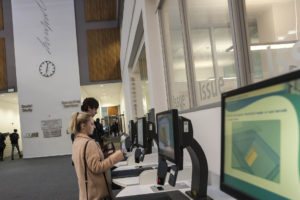How you'll learn
You will be taught using a balanced mix of lectures, workshops, seminars and tutorials and practical laboratory sessions, working cooperatively in small groups right from the beginning. Academic staff are available for 1-2-1 feedback and support. Course material is available 24/7 on our online learning platform; Canvas.
How you're assessed
Students on this course are assessed with a combination of exams and coursework. Coursework involves real world tasks such as writing position papers, educational blogs, policy papers, research proposals, posters, oral presentations, group projects, and research projects. You’ll submit coursework which contributes to your final grade during years two and three. During your final year, you’ll also submit your 3rd year research project.
Liverpool Hallmarks
We have a distinctive approach to education, the Liverpool Curriculum Framework, which focuses on research-connected teaching, active learning, and authentic assessment to ensure our students graduate as digitally fluent and confident global citizens.
The Liverpool Curriculum framework sets out our distinctive approach to education. Our teaching staff support our students to develop academic knowledge, skills, and understanding alongside our graduate attributes:
- Digital fluency
- Confidence
- Global citizenship
Our curriculum is characterised by the three Liverpool Hallmarks:
- Research-connected teaching
- Active learning
- Authentic assessment
All this is underpinned by our core value of inclusivity and commitment to providing a curriculum that is accessible to all students.







